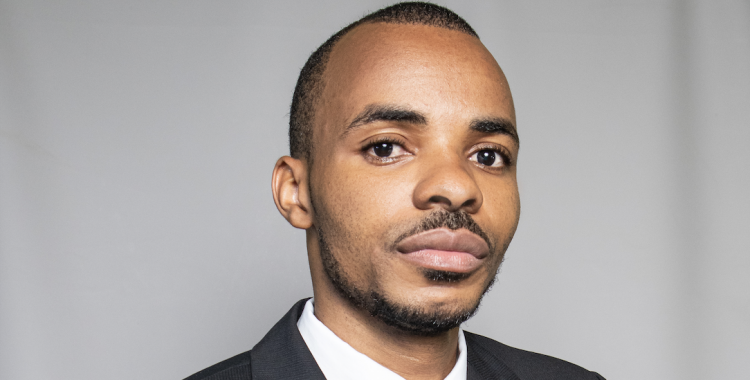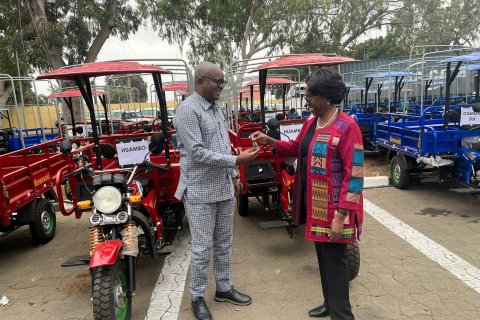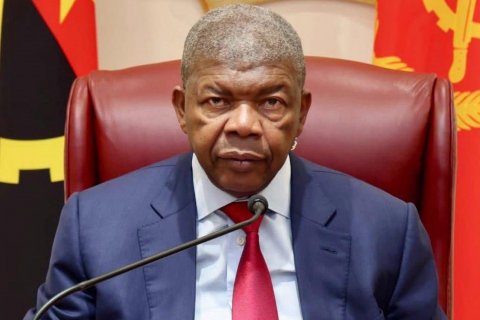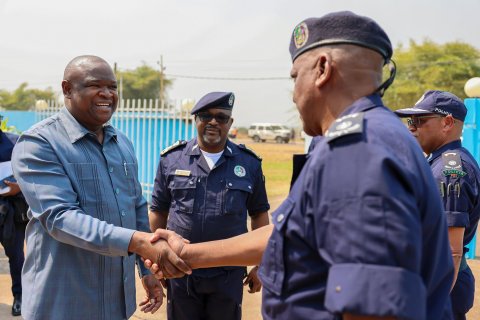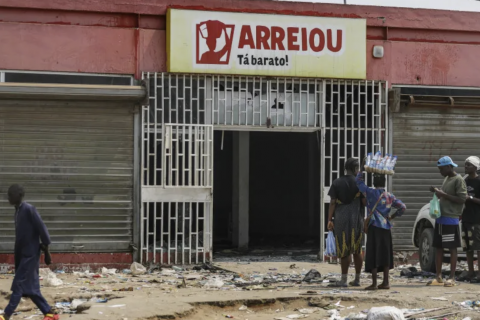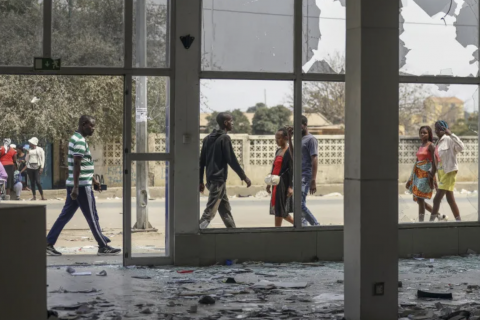Dignity and human rights are concepts that are discussed on pages where concrete measures are also presented to "humanize the treatment given to victims of crimes and guarantee their rights".
To VerAngola, the psychologist tells how the idea for the book came about, also addressing contact with victims and the choice of the Ombudsman's Office for the preface to the work.
The presentation will take place later this year, in December, in Luanda, in a room to be announced.
How did the idea for this book come about?
Well, the idea of writing this book came about in 2018 as a result of the knowledge I acquired during my specialization in Criminal Psychology at the Faculty of Social Sciences (FCS) of the Agostinho Neto University (UAN), specifically in the discipline of Victimology, because in addition to this area of knowledge studying in detail the victim, their relationship with the offender, the justice system and society in general, it is focused on the formulation of public policies, and its purpose is to guarantee rights, psychosocial, legal and medical assistance policies for victims. Therefore, the subjects taught by Professor Loidy Vaz de Almeida – at the time my professor not only of Victimology, but also of Forensic Psychology – allowed me to have the necessary 'know-how' to address the treatment given to crime victims by the Justice system.
How much time did you invest in the work?
Initially, it is worth highlighting that we had two phases of production and creation of the work: the writing process that lasted two years and six months, between August 2020 and February 2023; and the editing process that took one year. In general, until the final product, it was possible to complete the book in three years and six months.
What led you to write a work about the victim?
Because I understand that the debate about the treatment given to victims of criminal acts is current and of great relevance for all societies. In the Angolan context, its importance is accentuated as we start from the understanding that Public Administration bodies, such as the different bodies of the Ministry of the Interior; the Military Judicial Police; the Attorney General's Office; the Ministry of Justice and Human Rights; Courts, etc., must permanently seek to improve their relations with victims of criminal offenses.
Why did the Ombudsman choose to preface your book?
The choice of the Ombudsman, Florbela Araújo, to produce the introductory text to present the work is due to the relationship that the theme presents with the object of the institution "Ombudsman" which, under the terms of n.º 1, of article 192 of the Constitution of Angola, represents an "independent public entity whose purpose is to defend the rights, freedoms and guarantees of citizens, ensuring, through informal means, justice and the legality of Public Administration activity".
The work is coordinated by Masters Óscar Sousa Domingos and Loidy Vaz de Almeida. What was this process like?
Working with Masters Óscar Domingos and Loidy de Almeida was (and has been) a very learning process, largely because they are people with vast experience in scientific research matters. It is important to highlight that they are important people in my life as a writer. In addition to Prof. Me. Óscar Domingos (by the way, my brother), being responsible for the textual amendments of my writings – since 2020 – also stimulated my development from the point of view of "writing technique". His guidance had major implications for my current way of writing, as he instructed me to correctly apply the rules of scientific investigation and, above all, to produce research work as it "should be".
Already Prof. Loidy de Almeida, as I said before, was my Forensic Psychology, Internship and Victimology teacher, and has her "fingerprints" on my emergence as a writer. It was inspired by the scientific work authored by the then Deputy Commissioner – Prison, currently Deputy Commissioner of the National Police, Fernandes Manuel – after the invitation made in April 2018 by Prof. Loidy Vaz de Almeida to participate in the launch of the work entitled "Crime e Psicologia no Sistema Penitenciário", which I began to develop self-education in scientific research, a phase in which I began to dedicate myself to writing my first scientific work in the "psycho-forensic" scope, which in turn took place concluded in 2020, but due to the changes made by the Angolan State to the nation's legal framework, this, with the introduction of the current Penal Code and the Code of Criminal Procedure, I was forced not to publish, since, in addition to the Code of the Family, the legal body that supported the aforementioned work was mainly composed of the Penal Code of 1886, as well as the Code of Criminal Procedure of 1929, both bequeathed by the Portuguese Republic in Angola.
The book contains a Legal Advice. What criteria did you apply to the integration of the people who composed it?
The main precept observed for the integration of the people who constituted the project's Legal Council was "qualification in matters related to the organization of the Angolan Criminal Legal System". Therefore, it is important to highlight that the aforementioned Council included the Military Judge, Bill Sacunduinga; the lawyer, Elizionete Van-Dúnem; the Judge, Emiliana Barnabé; the Director of the National Directorate of Investigation and Criminal Action (DNIAP) of the PGR, Deputy Attorney General of the Republic, Pedro Mendes de Carvalho; and the Deputy Ombudsman of the Republic of Angola, Aguinaldo Guedes Cristóvão.
Have you spoken to some people who have actually been victims of the Criminal Legal System? If so, which story impacted you the most?
Yes, during the period in which I applied the questionnaire at the Luanda Municipal Command of the Angolan National Police, I had contact with 194 victims of crimes who, when seeking justice services in that territorial unit, were revictimized during the contact they had with the judicial apparatus. On the other hand, it should be noted that, among the criminal offenses recorded during the research in that territorial unit – specifically in the Terra Nova Police Station, Urban District of Rangel –, the case that marked me most was the sexual abuse of a minor under the age of four, and this (the minor) and his family (indirect victims) did not receive any psychological assistance and/or attention to the emotional damage caused by the crime.
It states that the book addresses the "interventive actions of justice operators, from the police to the top of the Judiciary in the face of victims of criminal acts." What kind of conclusions did you draw after writing it?
After writing, it was possible to conclude that the international conventions to which the Republic of Angola is a signatory and the national legal system ensure a set of rights granted to victims of criminal offenses, which should be guaranteed from the stage in which the victim comes into contact with the judicial apparatus until the end of due legal process. It is necessary that the authorities of the administration of the justice service do not have the exclusive objective of their jurisdiction to prove the crime and punish the offender: they are also expected to adopt appropriate treatment for the victims, in accordance with what is established by law, as well as allowing the legitimate exercise of victims’ rights.
What is, from the book's perspective, the "consolidation of the response mechanisms of justice and auxiliary bodies to protect the rights and guarantees of victims of criminal offenses"?
From the perspective of the approach presented by the book, the consolidation of the response mechanisms of justice and auxiliary bodies to protect the rights and guarantees of victims of crimes, necessarily involves the combination of elements such as, among others: the guarantee of working conditions favorable to the development of judicial and police activities; the application of assistance measures; the duration of legal proceedings; the relationship with justice agents; the conditions related to the physical structure of police and/or judicial facilities; the accessibility of information related to the criminal process; and the attention that must be given to the victim.
After writing the book, do you feel that the Angolan Criminal Law System is unfair to victims?
Yes! In many cases, the Angolan Criminal Law System has been unfair to victims. The observance of victims' rights is an obligation of the State, which must constantly seek to comply with the basic assumptions of human dignity. Proper care for victims is not a process of begging: it is a necessity for the application of justice and compliance with socially accepted norms. What has been observed is that there is still a considerable abandonment of victims and their families, since the State has been largely dedicated to defending the rights and guarantees of the offender. The bodies of the justice administration service must increasingly assume the importance of defending human rights from two perspectives: the dignified treatment to be given to the perpetrator of the crime and the appreciation of the victim.
What measures do you suggest to improve this situation?
Well, the book presents several measures as a way of humanizing the treatment given to victims of crimes and guaranteeing their rights: from the appropriate interventions that each procedural instructor, criminal investigator, court officer, judicial magistrate and Public Prosecutor must have, to the actions of each body as a State institution. Therefore, the book will be available to the general public, in particular to those operating in the justice system – from the police to the top of the Judiciary – who in turn will have access to structural measures capable of providing qualitative changes from the point of view of guaranteeing the rights of victims of criminal offenses.
What are your prospects after launching the book? Do you think it will be well received?
After launching the book, I hope that the Angolan State will have an upward turning point that will provide a qualitative change capable of guaranteeing all the rights that victims enjoy. On the other hand, regarding the reception of the work, I have strong indications that it will be well received, not only for the relevance and quality of the approach, but also for the positive reactions that I have been receiving from people.
Which publisher 'risked' addressing this topic with you?
The book "A Vítima no Sistema Jurídico Penal Angolano: uma análise sobre o tratamento conferido às vítimas de crimes pela Justiça", was published and will be launched by Kilunji Editora, with editorial coordination by Professor Catarino Luamba.
And for the future, do you have other projects in the pipeline?
Yes, as long as there is health and life, Angola will be able to count on several other publications in the future, even co-authored ones. I have many projects in the pipeline, others already completed and which, obviously, will be launched at the appropriate time.

